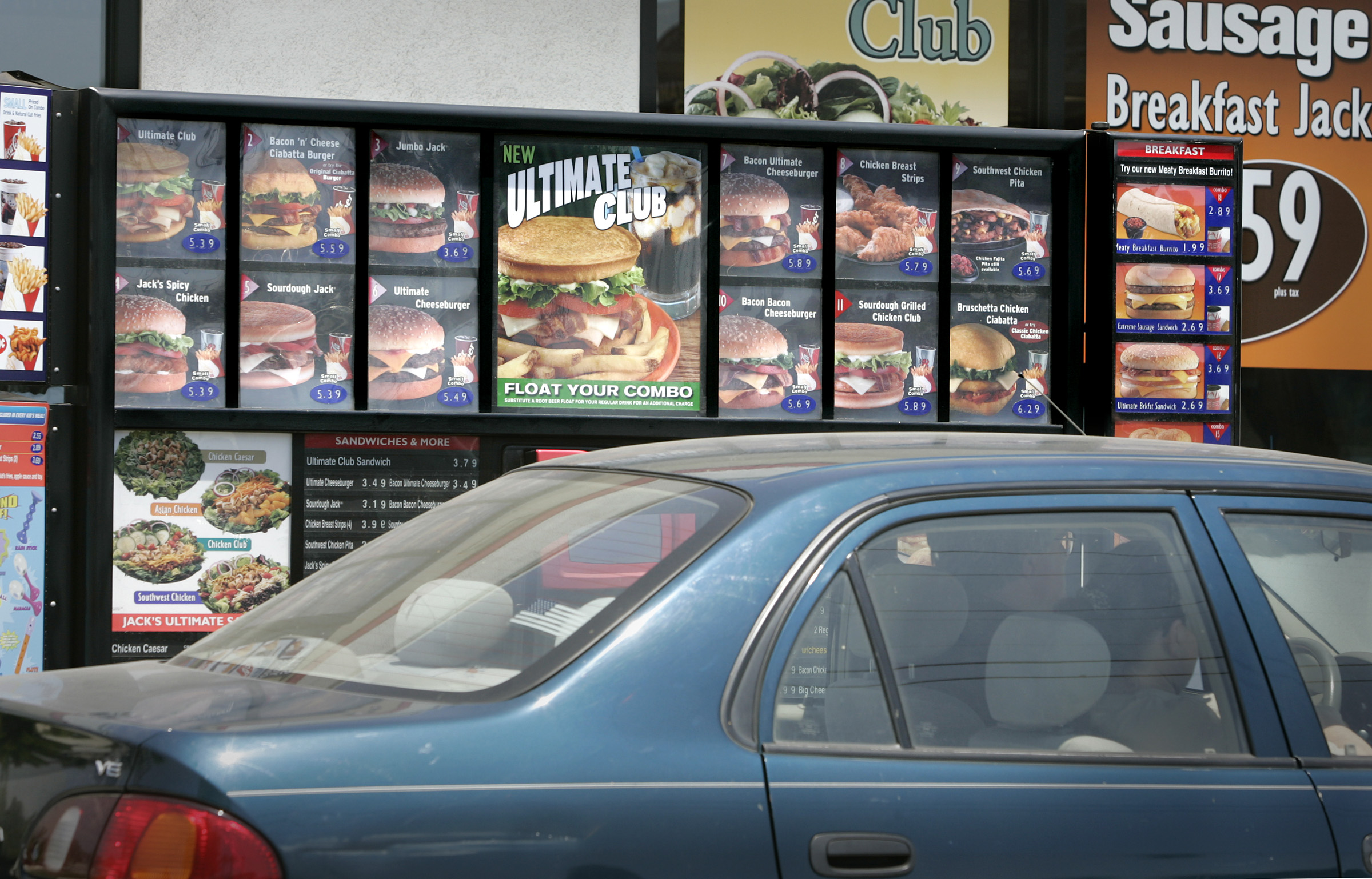Fast Food Needs To Better Serve Its Deaf Customers
It's been less than a month since an employee of a Burger King in Oklahoma City was fired for refusing service to a deaf customer, and already there are reports of a similar event that took place at a Jack in the Box in Campbell, California. In this latest incident, which happened this week, a 39-year-old deaf mother says she was refused service and mocked for her disability.
NBC Bay Area interviewed the woman, Revae Arnaud-Jensen, who has been deaf since birth. She says she approached the staffed drive-thru window after bypassing the speaker box, and tried to order from the employee there. Arnaud-Jensen says she planned to use lip reading and her speech to place her order, but even after she explained she was deaf, the employee continued to direct her to use the speaker box. Her son, who was in the vehicle, recorded the heated conversation with his phone; the video shows the employee pantomiming American Sign Language and laughing.
Arnaud-Jensen says she plans to sue Jack in the Box. Training employees, she believes, is not enough to ensure proper service: "It's not only training. ... Because you need that depth of knowledge of deaf culture to fully understand the needs," she told the station.
In a statement to NBC, Jack in the Box says: "We do not tolerate the mistreatment of any customers and expect employees to follow all training procedures, be respectful, courteous and accommodating to all guests."
But as Arnaud-Jensen says, having training in place—in whatever form that takes—clearly isn't doing enough to ensure customers with disabilities don't face discrimination from fast food establishments. According to the U.S. Census Bureau's 2017 figures, 12.6% of American adults have a disability. Fast food restaurants—and restaurants in general—must legally ensure that the roughly one in every eight customers with a disability receive accommodating service. Maybe that requires modifying standard ordering procedures. Maybe that requires staff be a little flexible in how they work.
Here are just a few ways restaurants can better serve deaf customers, but really, rule one is, we thought it went without saying, to treat them with respect.
